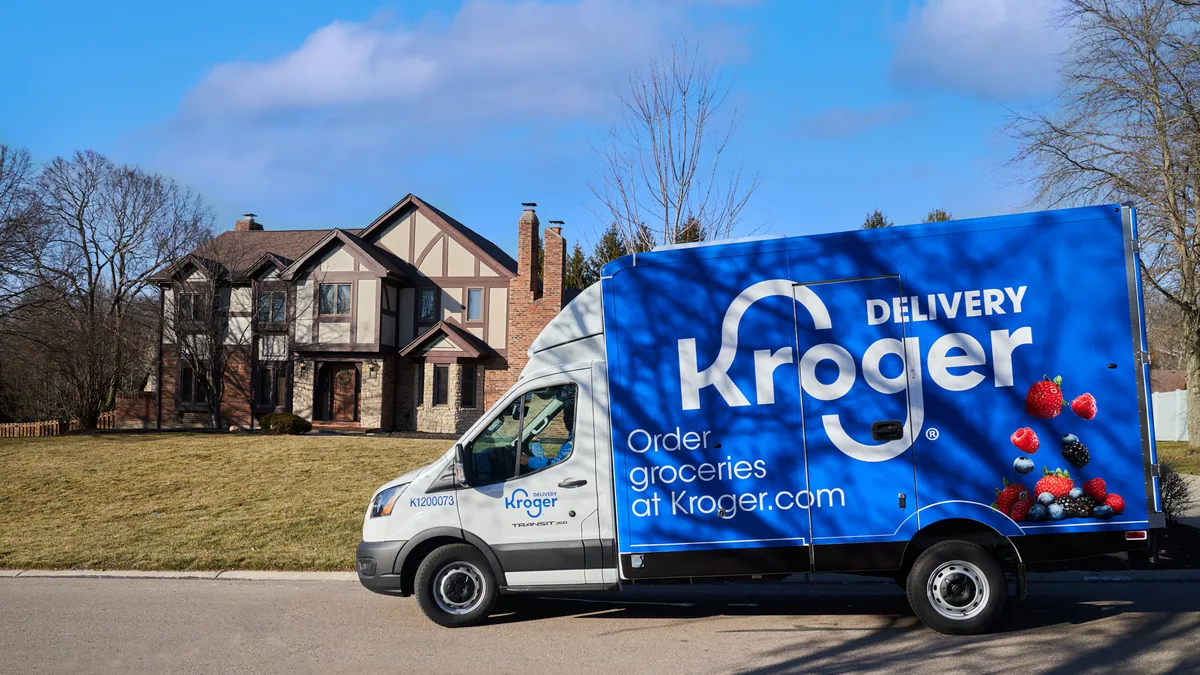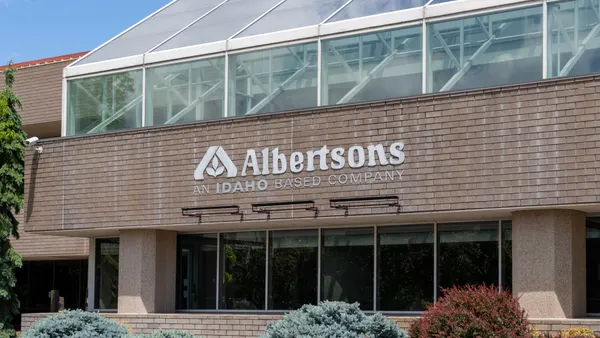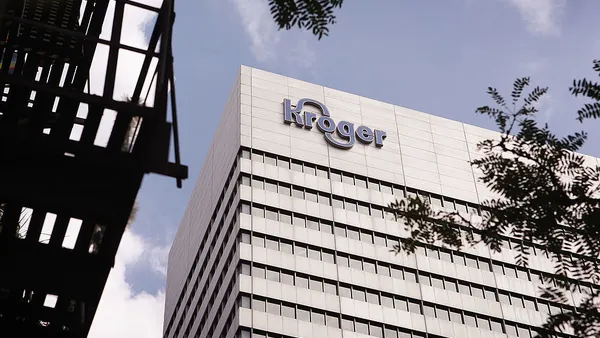Kroger announced Thursday that it has raised the dividend it pays shareholders by 10% compared with last year’s level, bringing the annual rate to $1.28 for each share.
The grocer’s dividend is going up this year at the slowest pace since 2017, when it came in at about 4%, according to data from StreetInsider.com. The increase is slightly below the 12% annual increase to the company’s quarterly payouts to shareholders that Kroger’s board approved in 2023 and less than half of the 24% dividend increase the grocery chain implemented in 2022.
Kroger, which is looking to overcome an effort by regulators to stop its planned merger with Albertsons, noted that it has approved a year-over-year dividend increase every year since it reinstated its dividend in 2006. The company said it has raised its dividend at a compound annual growth rate of 13.5% since that year.
Separately, Kroger shareholders overwhelmingly voted during the company’s annual meeting on Thursday to reject a proposal for the company to adopt a living wage policy, according to preliminary voting results reported by the grocer. More than 83% of shareholders voted against the proposal, the company said.
The proposal sought to pressure Kroger to pay “a living wage to prevent contributing to inequality and racial/gender disparity,” according to the grocer’s announcement about its annual meeting. The Shareholder Commons, a nonprofit group that looks to draw the attention of publicly traded companies to social and environmental issues, submitted the proposal.
Kroger’s “failure to provide a living wage to people who work for a living threatens the entire economy, and thus the investment portfolios of the average diversified investor,” Sara Murphy, chief strategy officer of The Shareholder Commons, wrote in a post on LinkedIn.
“We’re disappointed that Kroger shareholders refused to pass the living wage policy proposal. Kroger employees need higher wages, and many of them need more hours, so they can earn enough to afford even basic living expenses — not empty praise and free financial counseling,” Kathy Finn, president of United Food and Commercial Workers Local 770, said in a statement about the vote.
In the meeting announcement, the company urged shareholders to reject the proposal, arguing that it has pushed up pay for its associates. Kroger pays workers an average hourly rate of almost $19, a figure that rises to nearly $25 when benefits are taken into account, the company said.
A Kroger spokesperson declined to comment on the outcome of the vote.
Correction: The headline on a previous version of this story incorrectly described the response to the wage policy proposal presented at Kroger’s annual meeting. Shareholders rejected the proposal.














